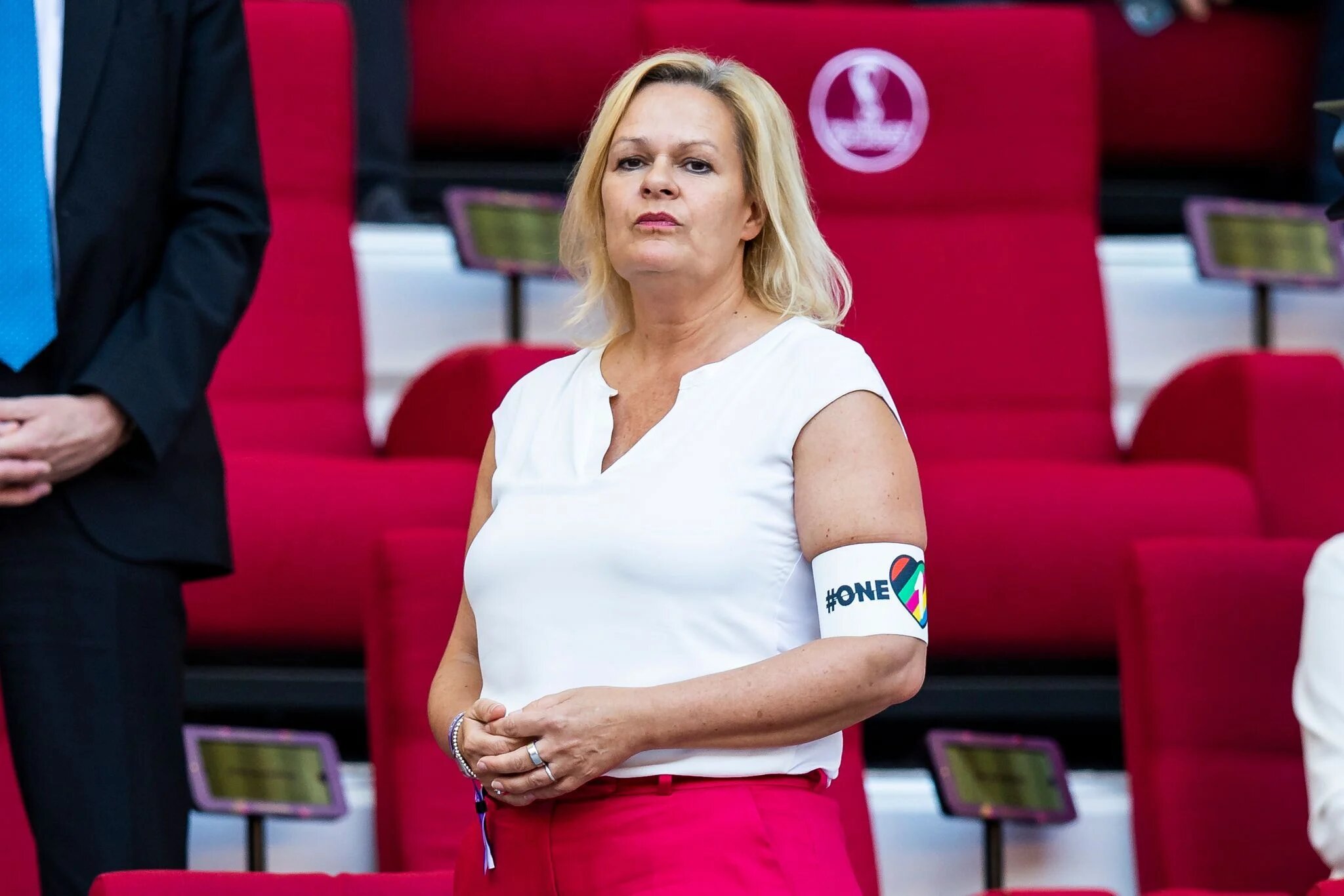The Berlin official was spotted during the tournament during the Germany vs Japan match wearing the “OneLove” armband.
The “diplomatic damage” caused by Germany’s interior minister’s criticism of Qatar ahead of the 2022 FIFA World Cup have been mostly repaired, though uneasiness remains, sources close to Doha’s government told Frankfurter Allgemeine Zeitung (FAZ).
Published on Tuesday, the German report focused on the visit of Berlin’s Foreign Minister Annalena Baerbock to Qatar on Wednesday after a stop in Saudi Arabia.
The visit comes months after Germany’s Interior Minister Nancy Faeser triggered a spat between Berlin and Doha after criticising the Gulf state’s human rights record.
The comments came under wider criticism, mainly driven by western media towards Qatar’s hosting of the World Cup, the first to ever take place in an Arab and Muslim country.
“Sources close to the government in Doha said today that the diplomatic damage left behind by the German interior minister has largely been repaired, not least because of the commitment from the chancellor’s office,” FAZ reported.
The sources added that while bilateral ties are on good terms, “there remains some uneasiness about public appearances by German guests.”
Just weeks ahead of the major sporting event, Faeser described Qatar’s hosting of the tournament as “very tricky” for Germany’s government, saying “it would be better that tournaments are not awarded to such states.”
Shortly after, Qatar summoned Berlin’s envoy to Doha, Dr. Claudius Fischbach, and handed him an objection memo to express its “disappointment and complete rejection and condemnation” of Faeser’s remarks.
Days later, the German minister said her comments were “misinterpreted” and told the press that she acknowledged the “very good laws” and reforms that have been implemented in the last few years.
The German minister of interior’s comments also came at a critical time as Berlin sought an alternative energy supply as it moved away from acquiring Russian gas in light of its war on Ukraine.
In November last year, Qatar and Germany signed a major liquified natural gas deal, providing the latter with the gas for 15 years starting from 2026.
Faeser was also spotted at the stadium during the Germany vs Japan match wearing the “OneLove” armband that advocates for the rights of the LGBTQ community.
FIFA had banned athletes from wearing it on the pitch as any modification to sports attire required pre-approval.
In January, Faeser spoke out against criticism she faced for wearing the armband, saying the move was in protest of FIFA’s decision and not the Gulf state.
During the same match, the German team made global headlines after launching a mouth-covering protest ahead of their debut at the tournament.
Notably, 46% of Germans who were surveyed by YouGov on behalf of Berlin’s news agency said sports and politics should be divided during major events.
Much of the criticism Qatar faced last year was centred on its alleged abuse of migrant workers and its stance on the LGBTQ+ community.
Qatari authorities responded to widespread migrant rights criticism over the years by introducing major reform, most prominent of which being the dismantling of the controversial kafala, or sponsorship, system.
Several officials had also alleged that racist motives are behind the anti-Qatar campaign, overshadowing the major reforms made by Doha.







